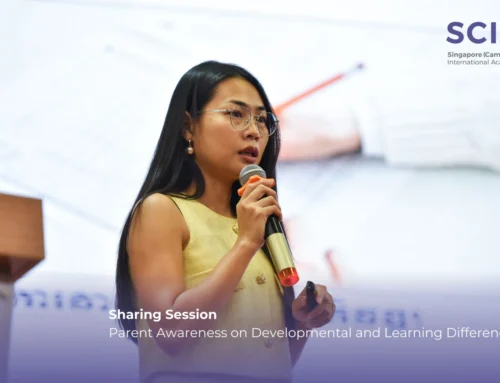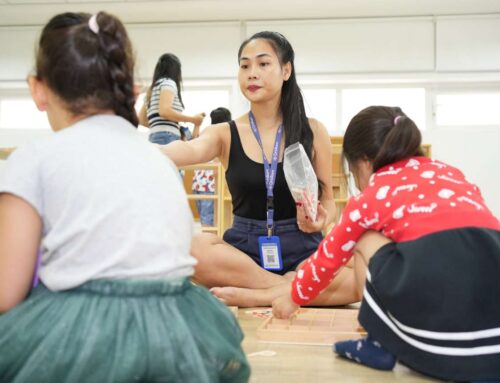Supporting speech in children with hearing loss is a journey that requires early intervention, patience, and consistent guidance. In Cambodia, where awareness and access to speech therapy are steadily growing, families and educators play a crucial role in helping children develop communication skills. With proper support from trained professionals and evidence-based therapy, children with hearing loss can learn to listen, speak, and express themselves with confidence.
Understanding Hearing Loss and Its Impact on Speech
Hearing loss affects how a child perceives and processes sound, which in turn influences their ability to produce clear speech. Children with mild hearing loss may struggle to hear certain speech sounds, while those with profound loss may rely on visual cues or assistive technologies such as hearing aids or cochlear implants.
Speech development depends heavily on auditory feedback — a child must hear their own voice and the voices of others to refine pronunciation, rhythm, and tone. Without intervention, hearing loss can delay not only speech but also language comprehension and social interaction. This is why early detection and speech therapy are essential.
Parents in Phnom Penh and across Cambodia are increasingly seeking services like speech therapy and assessments to identify communication needs early and support language growth.
The Role of Speech Therapy in Hearing Loss
Speech therapy helps bridge the communication gap by teaching children how to recognize sounds, use hearing devices effectively, and practice speaking through structured play and interactive learning. A trained speech-language pathologist tailors each session to a child’s hearing level and developmental stage.
Therapy may include:
-
Auditory training: Helping children distinguish between different sounds.
-
Speech sound production: Teaching how to form words clearly and accurately.
-
Language comprehension: Building vocabulary and sentence understanding.
-
Social communication: Encouraging meaningful conversations with peers and adults.
At centers like OrbRom Center, therapists combine these approaches with visual cues, gestures, and technology to help children engage fully in communication.
Early Intervention: The Key to Progress
The earlier a child begins therapy, the better their outcomes. Studies show that children who receive speech therapy within the first few years of life develop stronger language and listening skills. For Cambodian families, accessing early intervention programs such as OrbRom’s preschool program can make a lasting difference.
Early intervention focuses on:
-
Encouraging parents to model clear speech at home.
-
Using everyday routines for language learning (e.g., naming objects during play).
-
Collaborating with audiologists and teachers to ensure consistent strategies.
A supportive home and school environment can reinforce therapy goals and help children with hearing loss thrive academically and socially.
Practical Strategies for Parents and Teachers
Parents and teachers are vital partners in supporting children with hearing loss. Here are a few strategies that can be implemented at home or in the classroom:
-
Ensure proper use of hearing devices – Regularly check that hearing aids or cochlear implants are functioning and fitted correctly.
-
Create a quiet learning environment – Reduce background noise during conversations or lessons to make it easier for the child to hear.
-
Use visual aids and gestures – Combine speech with pictures, signs, or facial expressions to improve comprehension.
-
Encourage repetition and reinforcement – Repeat key words and phrases to help the child recognize sounds.
-
Celebrate progress – Acknowledge small achievements in speech and communication to motivate continued learning.
Teachers in Phnom Penh schools can also collaborate with speech-language services to integrate therapy techniques into classroom routines, promoting inclusion and communication success for all students.
Building Confidence Through Communication
Children with hearing loss often face social challenges due to communication barriers. Speech therapy not only improves pronunciation and listening but also builds confidence, helping them participate in conversations, share ideas, and form friendships.
Play-based activities, music, and storytelling — all core components of therapy at OrbRom Center — help children express themselves freely while having fun. With consistent practice and community support, these children can develop strong voices that reflect their thoughts, emotions, and personalities.
Conclusion
Supporting speech in children with hearing loss requires collaboration between families, schools, and professional therapists. With access to quality speech therapy in Phnom Penh, early assessments, and inclusive education, children can overcome barriers and achieve their communication potential.
In Cambodia, centers like OrbRom are leading the way in promoting awareness and providing specialized intervention tailored to each child’s unique needs. Through patience, empathy, and professional support, every child deserves the opportunity to be heard.







